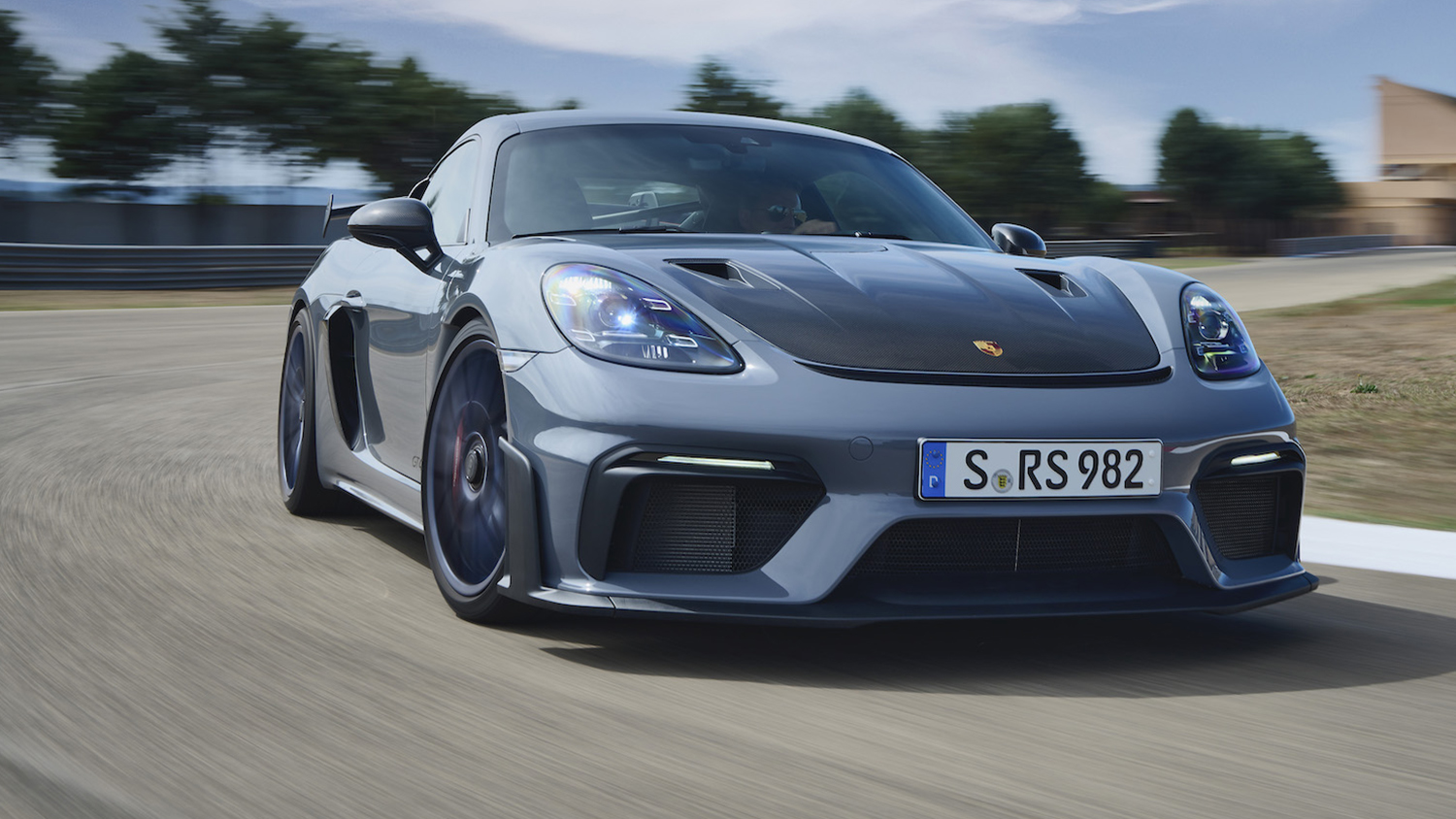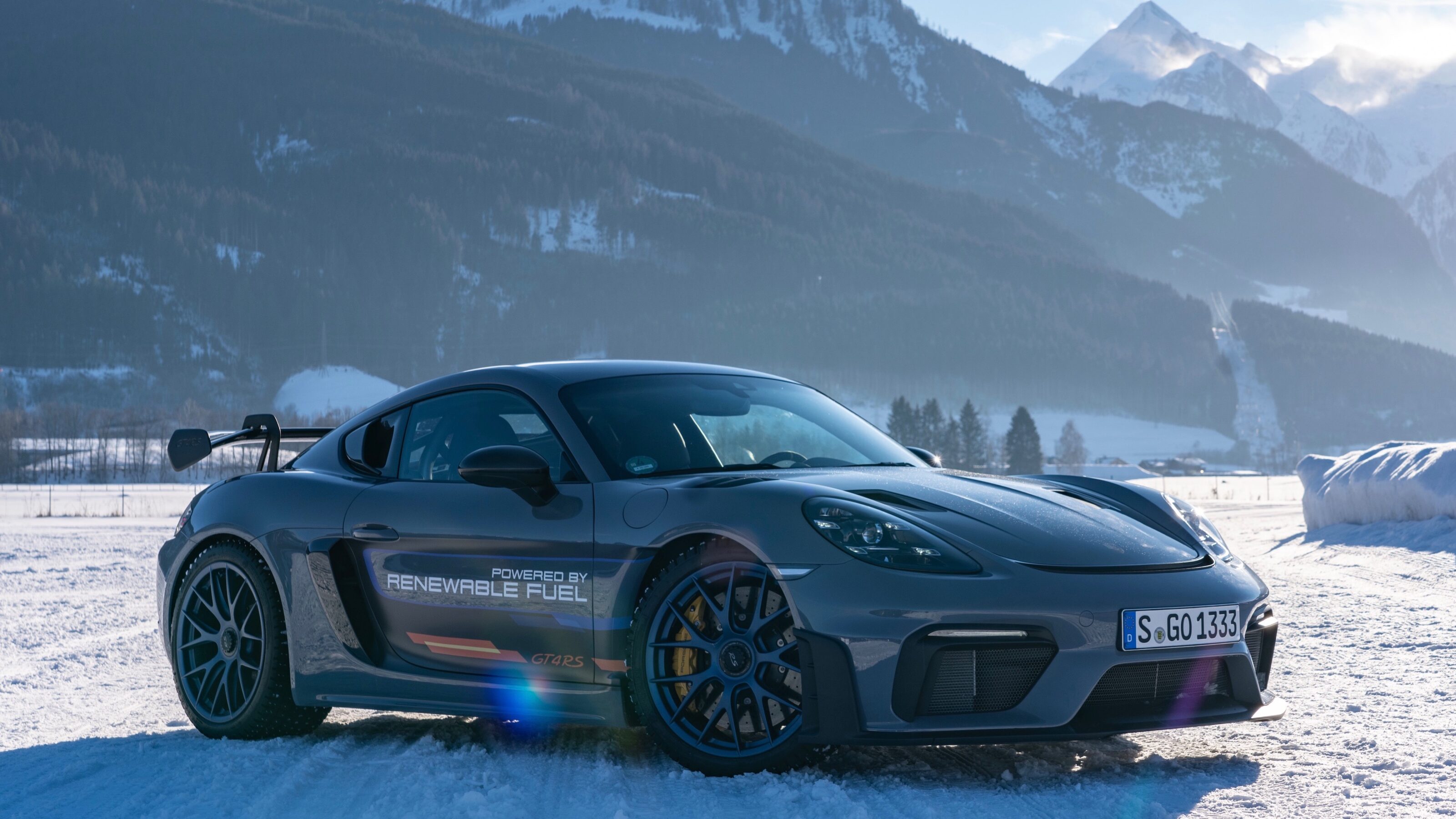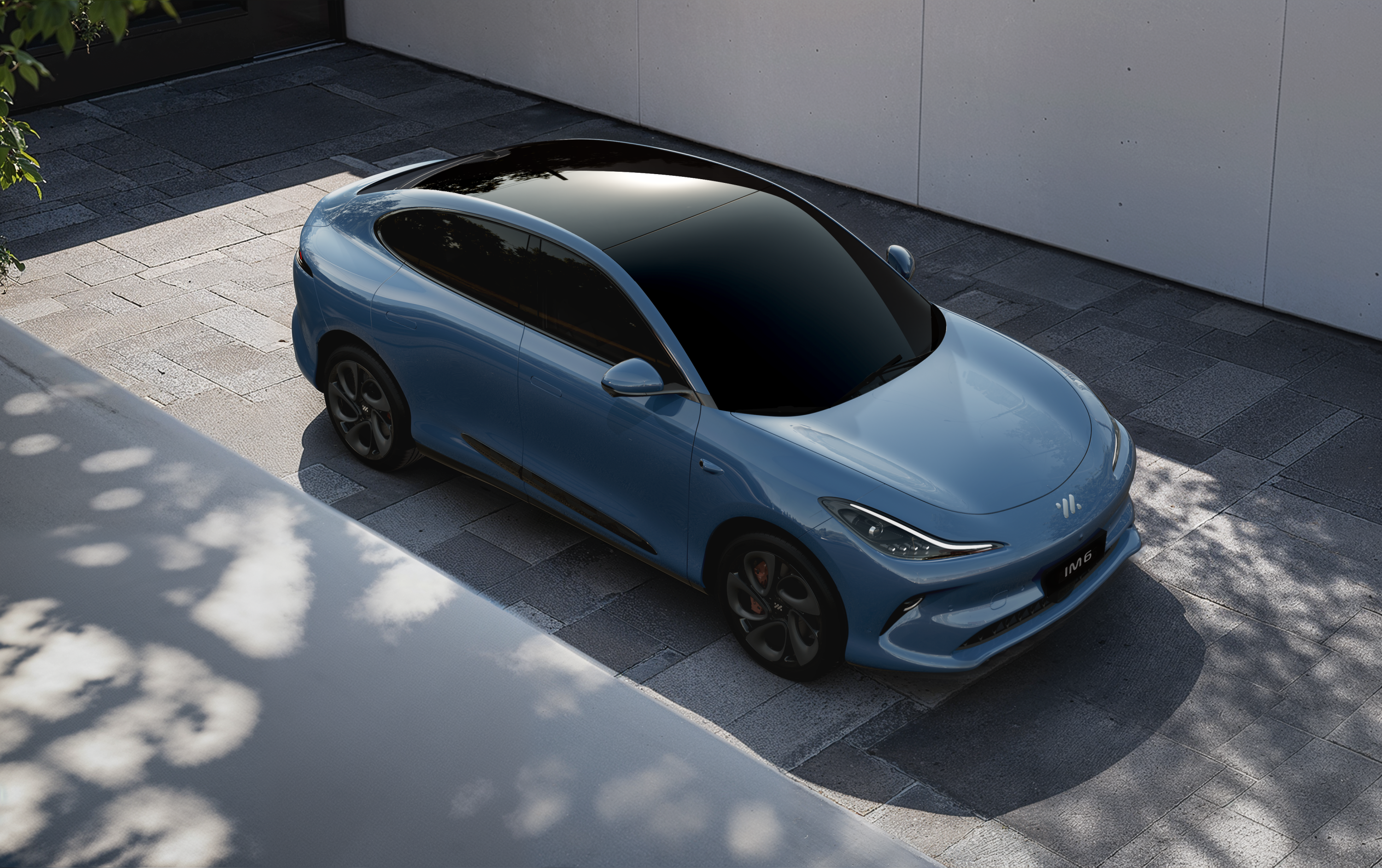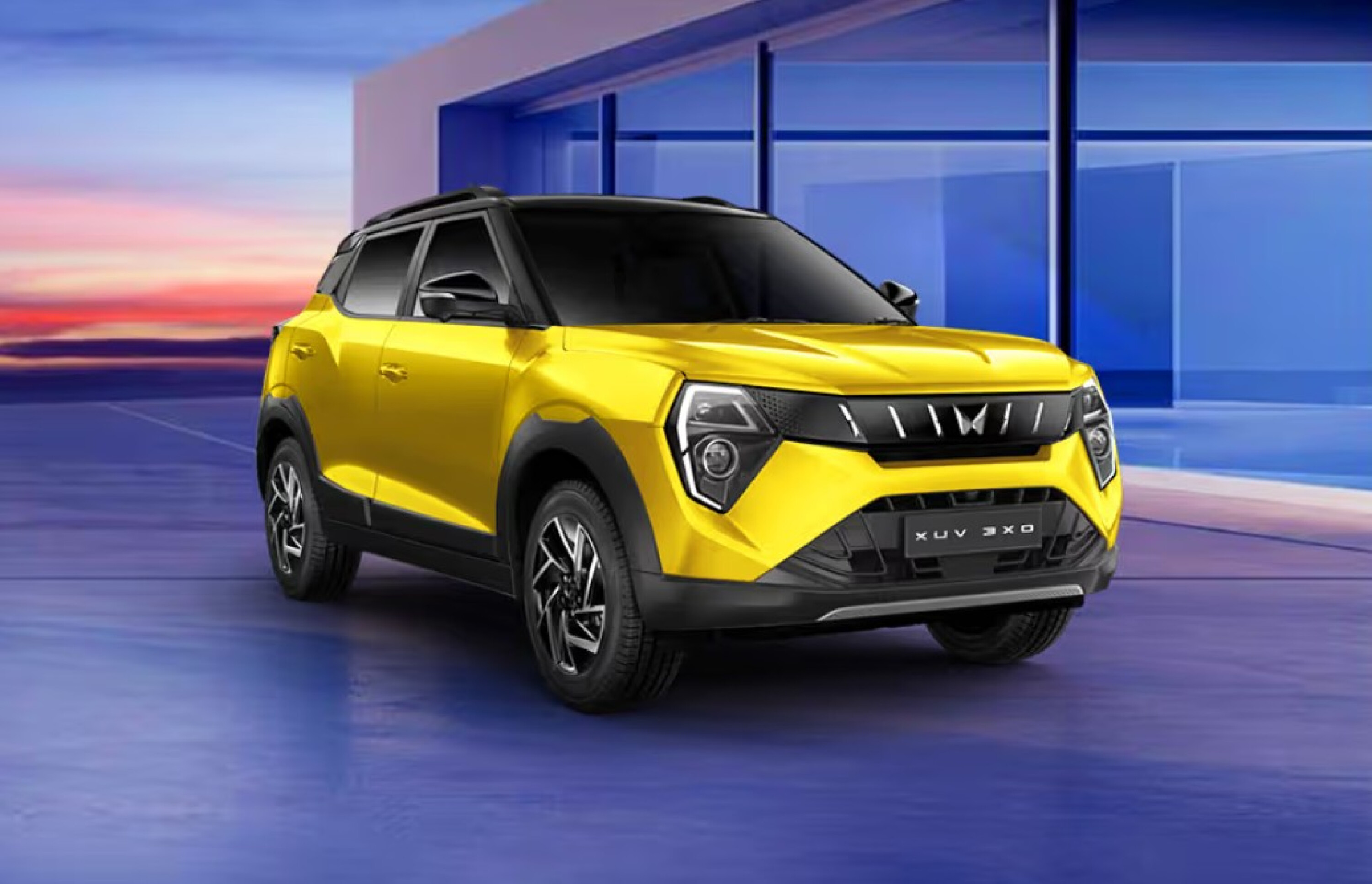When the next-generation Porsche Cayman is revealed, it is all-but guaranteed for an all-electric variant to make its debut as part of the line-up.
This will be a significant step change for Porsche, which has safeguarded both its 911 and 718 sports car lines from any electrification – even as it begins to produce a full EV and hybridise its other model lines.
As the Vice President for the 911 and 718 Product Lines, Frank-Steffen Walliser is the man in charge of making the electric Porsche sports car a production reality.
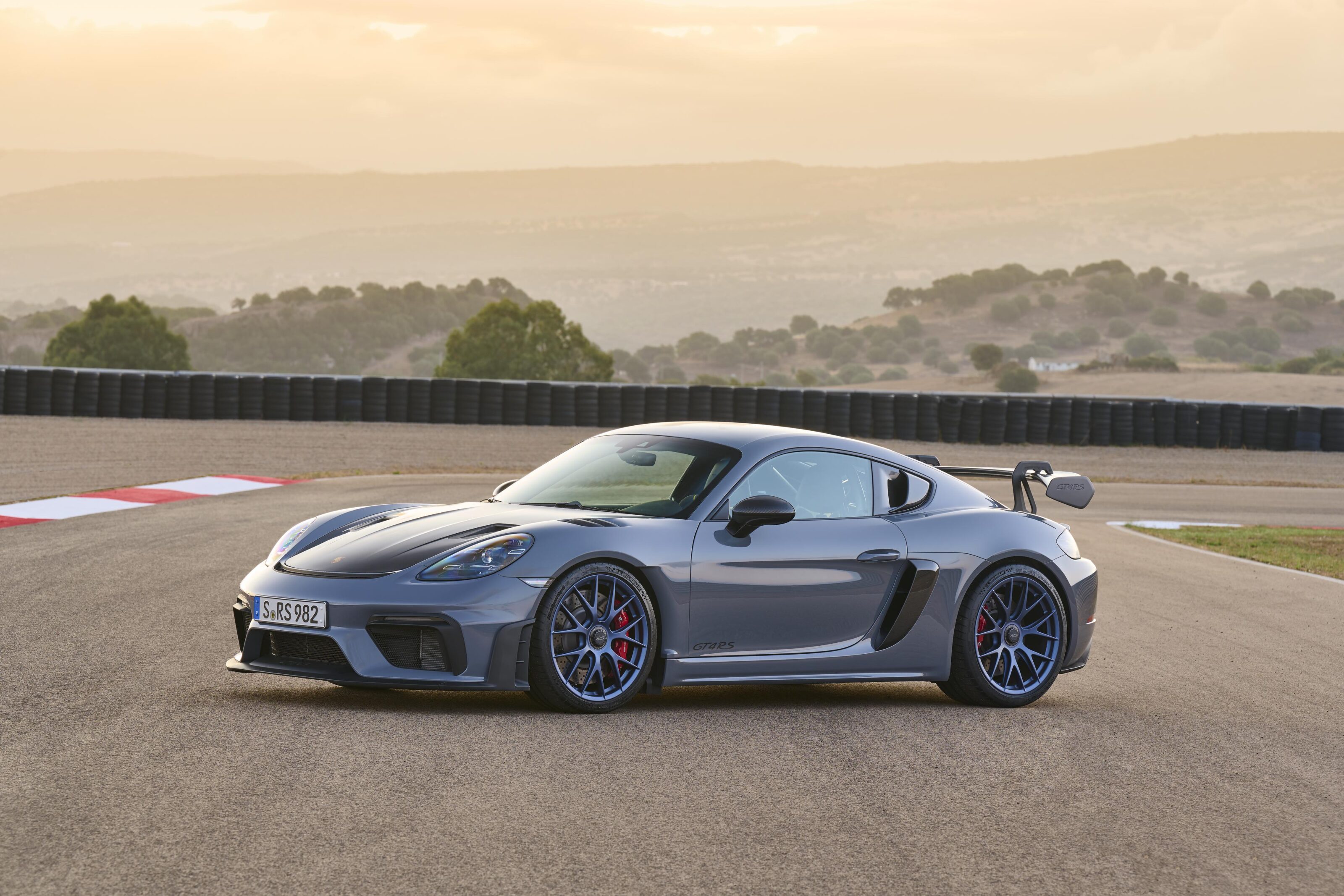
Walliser confirmed to MOTOR that there will be no middle ground hybridisation with the Cayman. Either full ICE or EV are the only options.
With no steppingstone, the challenge of keeping the somewhat ethereal ‘spirit’ of the Cayman alive with an electric powertrain is something Walliser is acutely aware of.
“Weight is crucial. Range is important, and range not only under testing conditions, but also under track conditions, that this works,” Walliser explained to MOTOR. “Fast charging must be a technical part of concept like this.
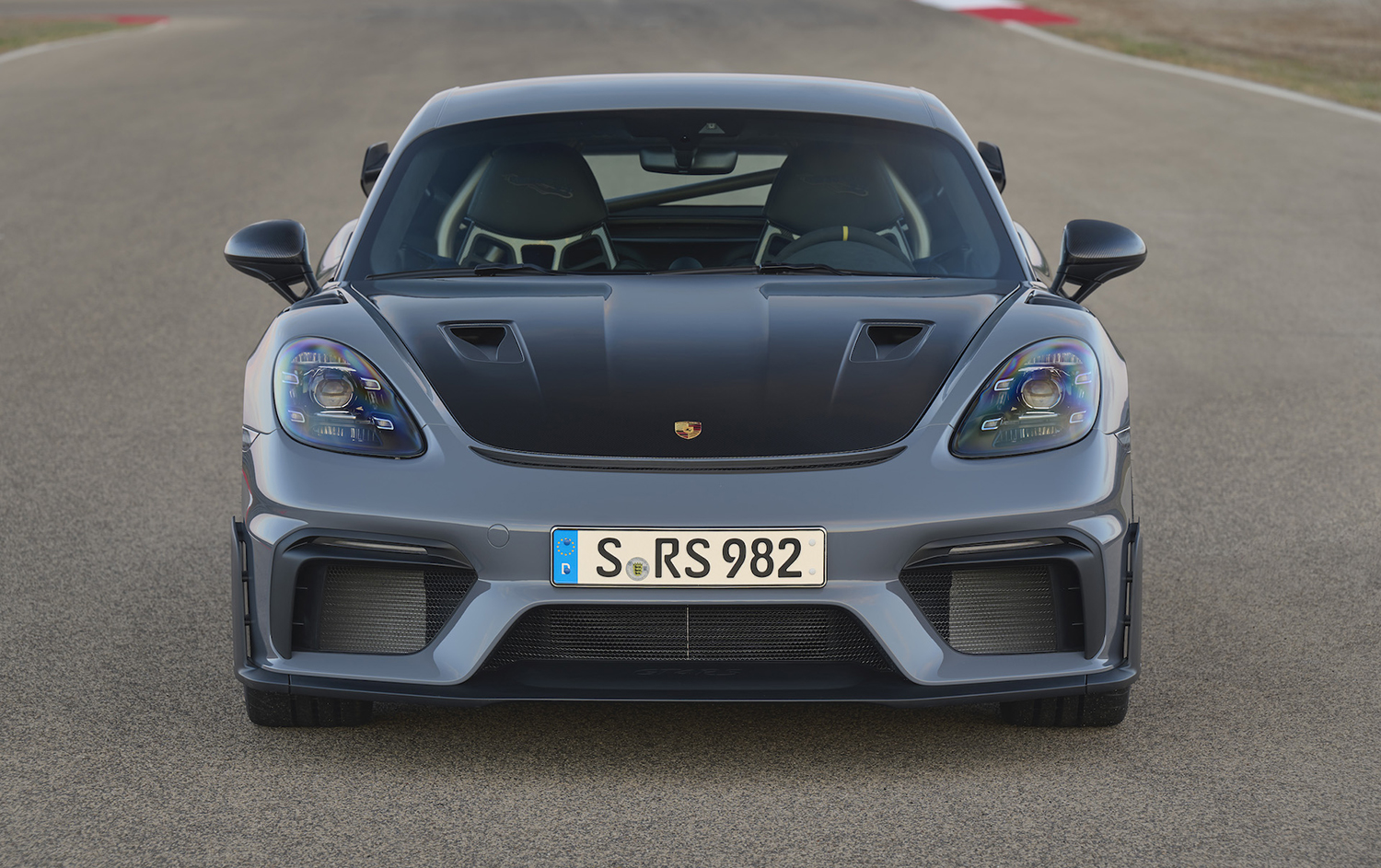
“Then all the behaviour of the car, how it sounds to you, how it gives you feedback from the road. All these things are important.
“If you can hear the car, maybe you hear something different. But you need the car to make an impact on you, to talk to you. This is all not so easy to achieve it.”
In Walliser’s eyes, an electric sports car must ‘talk’ to its driver in a way that stirs the soul much like the current crop of combustion-powered models. If that sounds more emotive than data-drive, it’s because it is. A fact that the former head of Porsche Motorsport understands requires a unique engineering approach.
“I think that this is one of the most interesting parts of it. At the moment, I’m a little bit unsure, I have to say, how this really works,” he admitted.
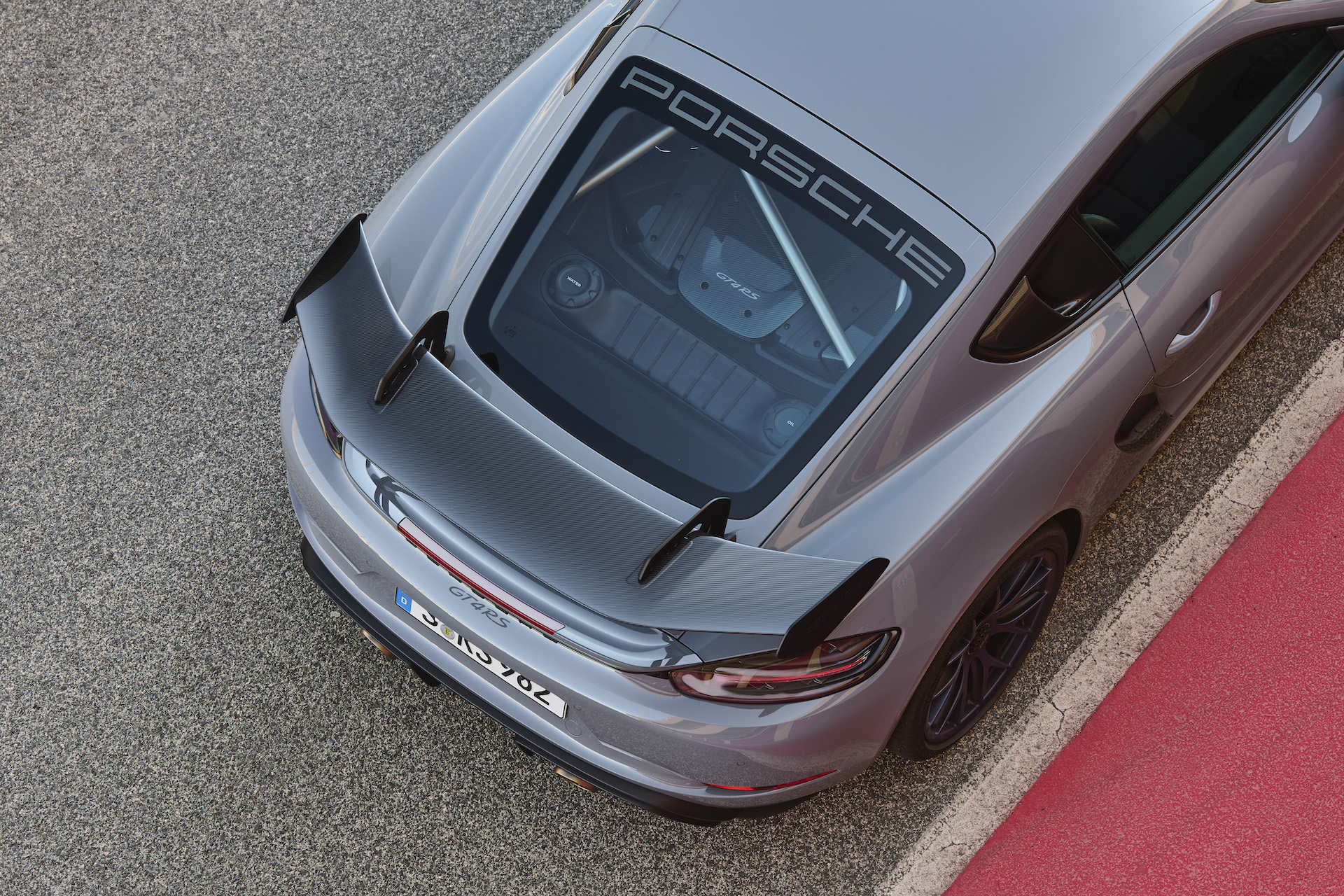
“The most convincing will be sit in the car, make a drive, come back, and then tell me. If this works, this is the target.
“This is not typical for engineering because what should I say to the engineers? Make it driving fun? Pleasure?
“But there’s a certain spirit to keep this going and say, well, it must be modern, but it must be a Porsche.
“It’s very, very difficult to really describe it. At the end of the day, the driving must be convincing. People get out and say: ‘Wow. I did not expect this.’”
Porsche’s first fully-electric vehicle, the Taycan, has proven popular with customers since first launching in 2019 – now selling in greater numbers than the 911.
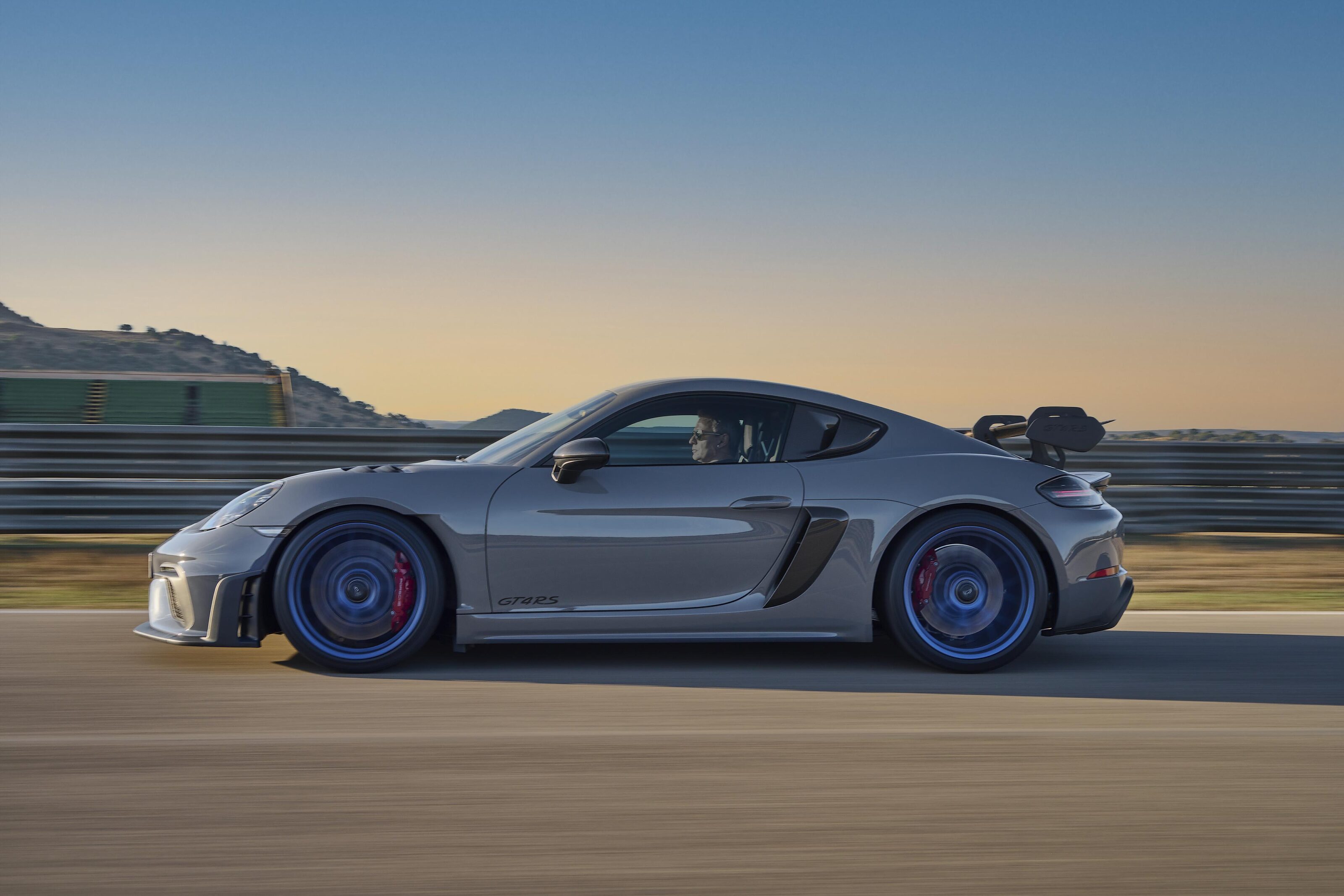
However, Walliser believes that feedback from those who have bought Taycans – what he described as early adopters – won’t easily translate in a way that informs the brand’s electric sports car plans targeted at more traditional buyers.
“At the moment, for sure, the customer base of the Taycan is a lot of people that are convinced enthusiasts,” he said.
The other challenge facing an electric Cayman – Porsche’s belief that its sports car models should have a racing and motorsport link. No exceptions.
For the Cayman, the answer will come in a shape very similar to the recently-revealed Mission R concept.
“The Mission R was about letting the motorsport department go and say: ‘Explore. What do you think? And then come back.’,” Walliser said.
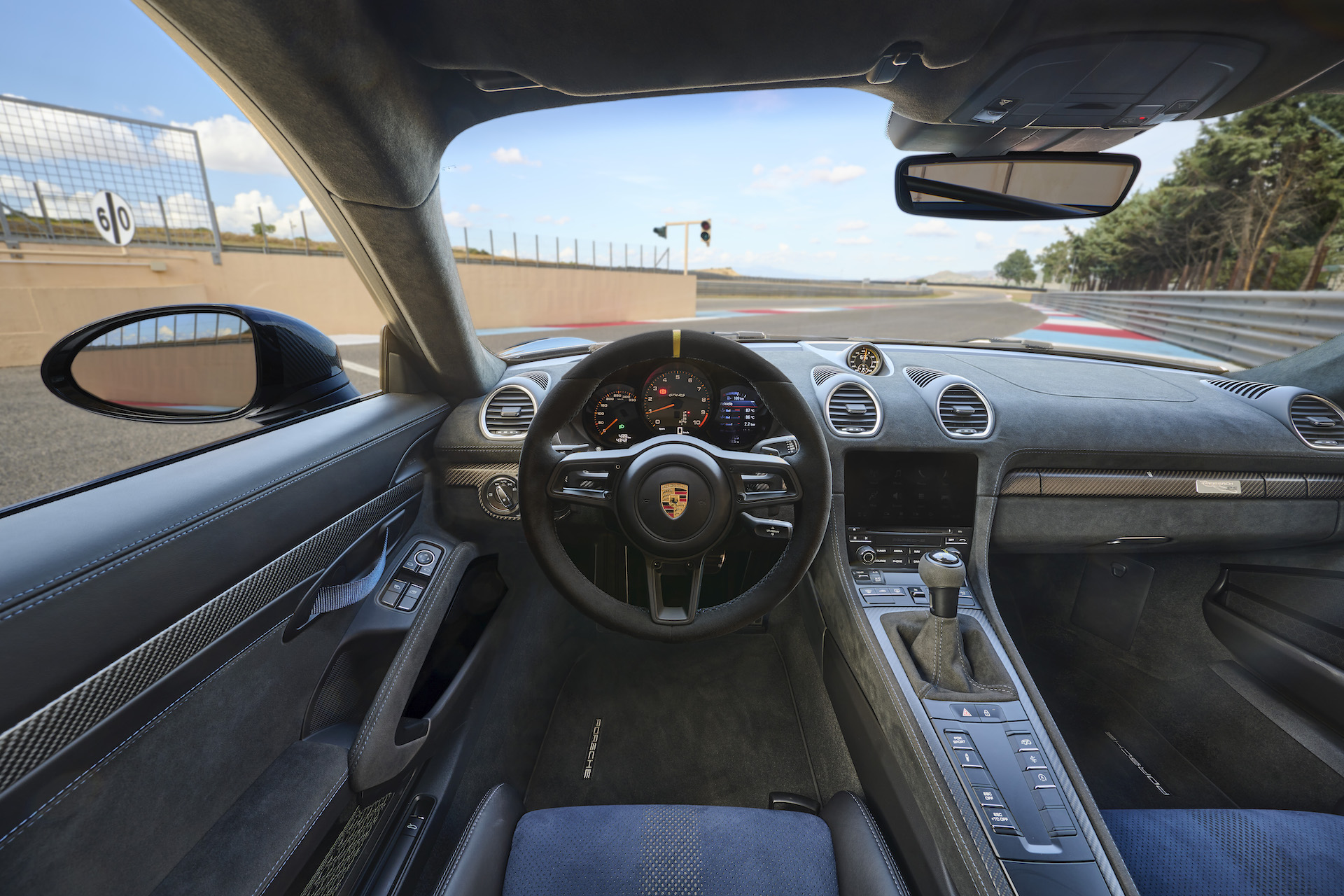
“And then, we share the ideas again. By the way, a car that I started when I was in motorsports. It was my idea.”
Walliser beams at the mention of the Mission R, clearly proud of the track-ready concept car that Porsche has said could be an indicator of a future one-make electric racing series.
MOTOR understands significant parts of the Mission R’s underpinnings are already being tested for road use by Porsche’s development teams.
The long shadow that will hang over an electric Cayman will be cast by the GT4 RS. A new variant for the mid-engine sports car that uses the engine of the 911 GT3, which will go on sale in Australia in the third quarter of this year.
Walliser sees the GT4 RS – what could be the pinnacle of internal combustion for the 718 Cayman – as somewhat of a crowning glory. A resolution to an internal debate that has waged within the walls of Stuttgart since the Cayman was first brought into existence.
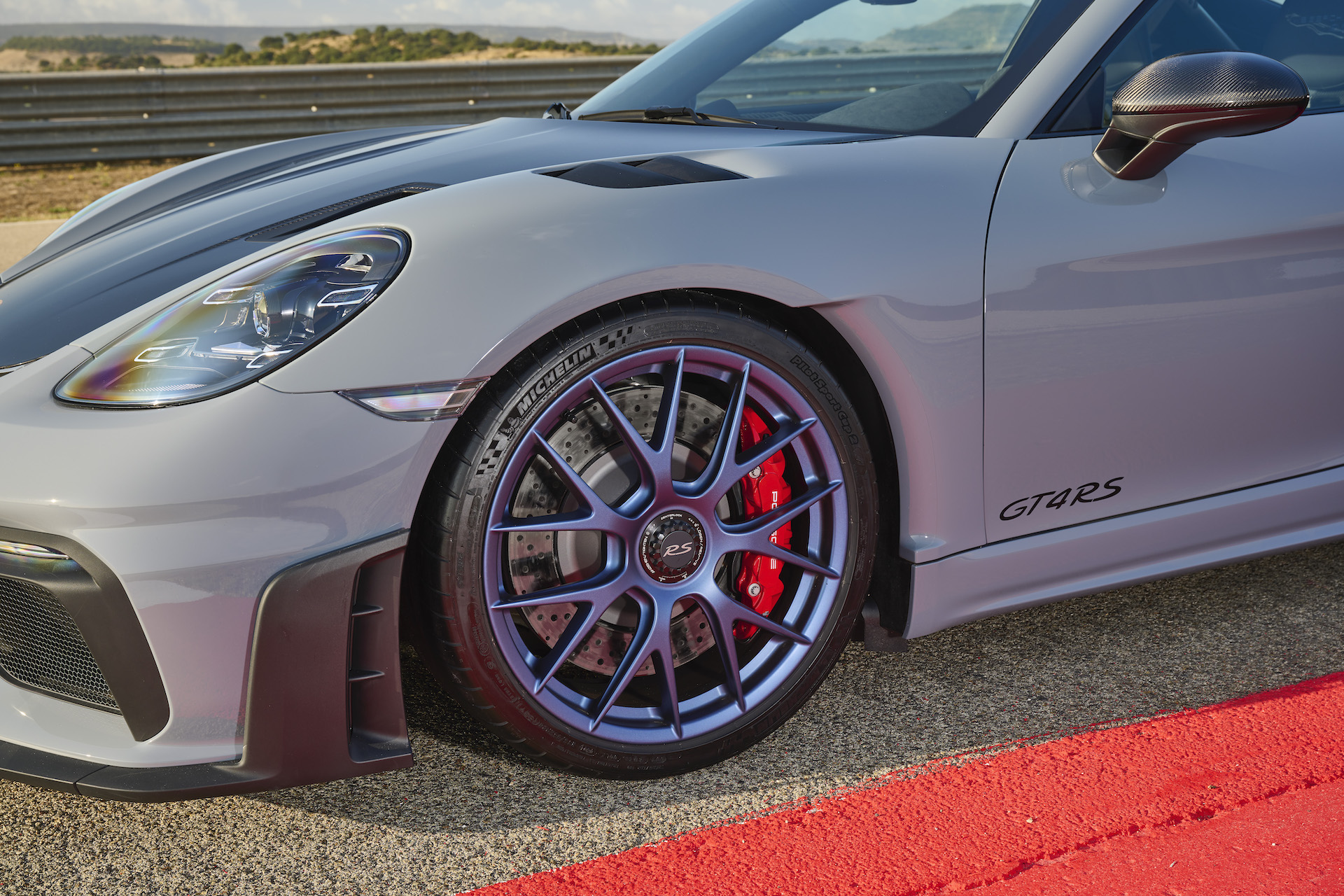
“For me, personally, it was, honestly, a 17-year period because, when the car was launched for the first time in 2005, I went to one of the board members and said: ‘Now, we put a proper GT engine in the car, and then let’s go.’,” Walliser commented.
“And the answer was, more or less, ‘You do not understand anything about our business because we cannot harm the 911, and we have to protect it and everything.’
When I was in the board, I said, ‘We will open, definitely, not only a chapter. We will write a new book in the history of the Cayman.’
“That had been my words also in the board presentation.”
MOTOR was in Portugal to drive the GT4 RS at Estoril Raceway. To find out if Walliser’s new book in the history of Cayman is worth the wait, make sure to check back for our full review on March 23.
We recommend
-
 News
NewsThe first Porsche Cayman GT4 RS prototype was a manual GT3 RS-powered monster
Andreas Preuninger used a GT3 RS-powered prototype to convince Porsche executives that a Cayman GT4 RS should be put into production
-
 News
NewsMore hardcore Porsche variants to come from GT division
Can’t get enough Porsche GT products in your life? Andreas Preuninger has a solution
-
 News
News2022 Porsche 718 Cayman GT4 RS previews synthetic fuel
Porsche is forging ahead with the development of synthetic petrol, with 130,000 litres of eFuels expected to be produced from 2022


